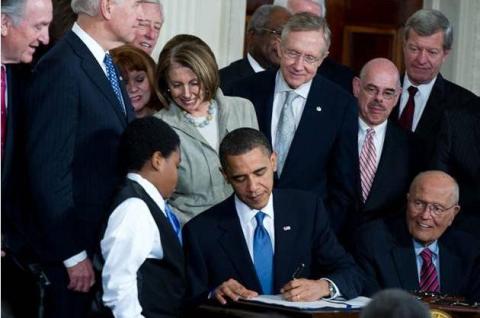The base word “tax” comes from Greek and means “arrangement” or “order.” The Supreme Court recently ruled that the federal government has the power to enforce the penalties in the individual mandate of the Affordable Care Act under its constitutional power to tax. I can't help but remember that the American Revolution and Declaration of Independence took place so many years ago because of taxes.
Whether or not the individual mandate is constitutional, it is flawed as a public policy because it is impossible for some people to follow. If some Americans cannot afford to pay the required premiums (or pay the fee, or pay for anything associated with health care), then what happens to those people?
I ask because I am one of those people, who cannot afford “one more fee,” “one more license,” “one more tax.” As a hard-working small business owner, I am barely keeping pace with my expenses now, so how am I going to pay for this new tax issued by the federal government? And if I refuse to pay it, either on principle or because of my inability to afford it– what happens to me? What happens to millions of people who are in the same situation?We have real problems already with our policies, laws, and mandates that are not equitably enforceable in a humane and free country like we proclaim to be. Our issues run deep, and no doubt there needs to be reform when it comes to health care, but the federal government creating a new burden for Americans already struggling with their growing expenses will not solve our deeper underlying problem of having a weak economy, a weak currency, and a focus on sick-care versus preventative care.
These talking points should be a normal part of our representatives’ diction. How do we preserve people’s individual rights to make choices for themselves, and also build an economy where more people like myself can voluntarily make purchasing decisions for health insurance? If I earned more money, I would like to be able to focus on preventative care, gladly pay doctors and professionals the “going rate” for some routine or inexpensive services on a case-by-case basis, and purchase insurance for catastrophic events (versus insurance for check-ups and other routine visits to health professionals).
Solutions are not complicated, but many of these solutions are outside of the scope of the federal government, the insurance industry, drug companies, and politicians. A big part of the problem is that with an economy in such bad shape, many Americans simply can't afford the rising costs of health care. Policies to grow our economy would make quality health care available to more Americans who want it. Congress' crude solution forces Americans to buy a service many may struggle to afford without addressing the reasons why.
Photo: reid.senate.gov
